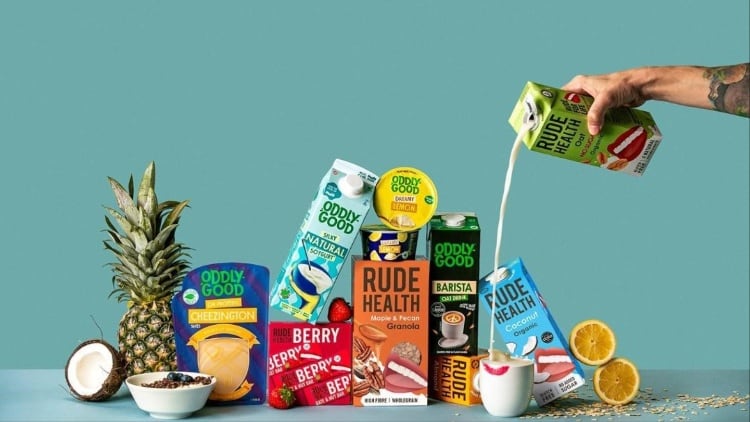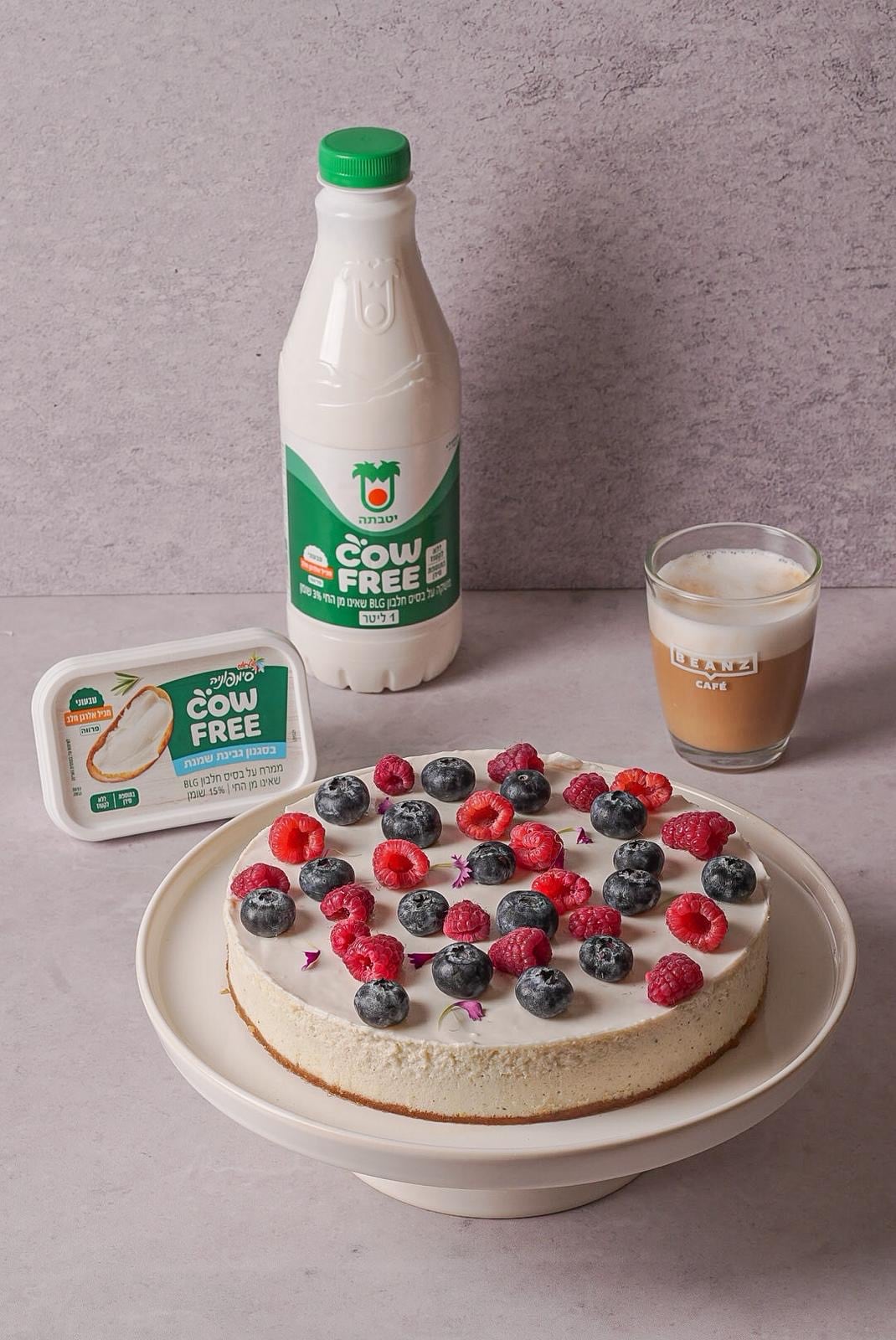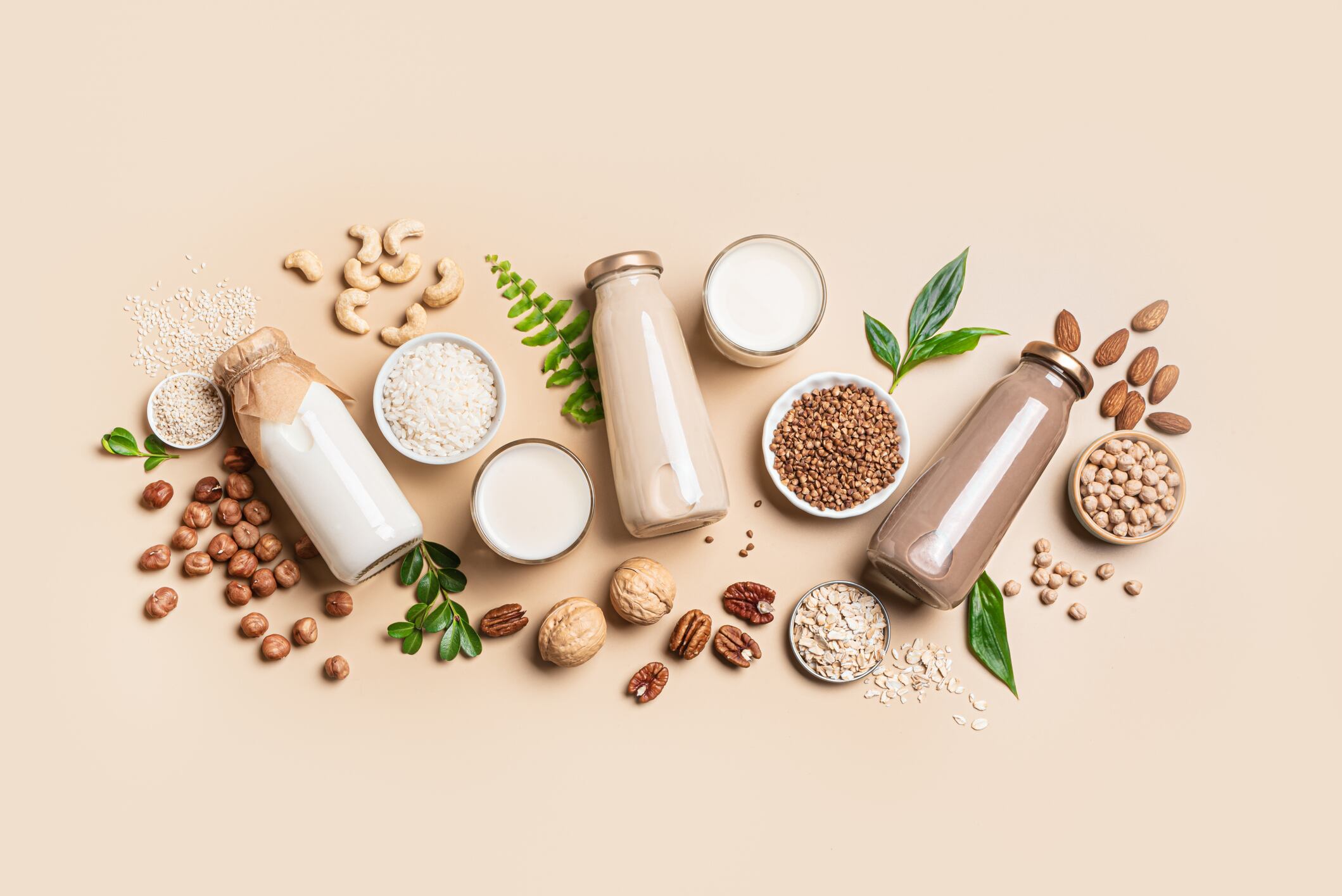Dairy Alternatives: Innovation and Market Insights
This story is based on insights shared by manufacturers during our annual Dairy Alternatives webinar. Catch the entire conversation on demand here.
Traditional dairy is enjoying a resurgence across categories and formats as consumer interest in nutritious and affordable natural foods gains pace. Gone are the days of rapid expansion in plant-based milks, now a mature category in many global markets; while political and regulatory barriers are putting a strain on start-ups in emerging spaces like precision fermentation, cell-based and hybrid dairy.
So how are manufacturers not just surviving but thriving in this environment - and where is the market heading next?
We hear from leaders and R&D specialists from Rude Health (Oddlygood Group), PlanetDairy and ImaginDairy . . .
‘Hybrid is the best way’

Danish foodtech start-up PlanetDairy developed and co-launched a hybrid milk range for Dutch retail major Albert Heijn this summer. Part cow’s milk, part plant proteins, the product targets consumers who don’t want to swap dairy for plant-based milk alternatives but want to reduce their environmental impact.
The hybrid milk is priced the same as dairy milk and it’s displayed next to traditional milk, PlanetDairy CEO Jakob Skovgaard told us during DairyReporter’s Dairy Alternatives: Innovation and Market Insights webinar.
“Our first products were hybrid products where we worked with dairy ingredients, but at the same time with proteins from legumes, with plant-based oils and we found a way to already reduce CO₂ by 30%- 40% and make products which are very close to the real thing,” Skovgaard explained.
“We launched the hybrid milk as a private-label product with Albert Heijn in the Netherlands and we have a number of projects ongoing to scale further in private label.”
So how is the product doing in retail? There’s been ‘a lot of positive feedback’, the chief executive told us, but it’s still ‘too early to draw any big conclusions’. “Albert Heijn is testing different promotional mechanics to increase awareness and trial.”
But when it comes to introducing eco-conscious consumers to new alt dairy formats, a blend of real dairy and plants is ‘the best way’, he added.
That’s especially the case with cheese alternatives; an area of product development that PlanetDairy has also had its hand in. “We started with cheese with our hybrid approach, because that’s where we saw the biggest gap in terms of performance,” he told us. “The simple reason for that is that a good cheese needs casein. The Holy Grail is to get the casein via precision fermentation to replicate exactly that chemical and biological characteristics of the cow’s milk protein.”
But that’s currently possible in Europe due to regulatory and commercial barriers; leaving hybrid dairy as the best way to create a less carbon-intensive alternative to traditional cheese. “We believe hybrid is the best way - a good stepping stone to bring us some of the way [to creating ‘real cheese’ experience].
‘We want to be a leading challenger’

Rude Health, now part of the Oddlygood Group, has defied market trends and saw growth in demand for its plant-based dairy alternative products in 2024. The company majors on clean-label formulations and the R&D team digs deep to deliver flavor, nutrition and functionality naturally.
“The job of the innovation team is to maintain the standards of the existing core range…, especially for a brand like Rude Health where we are using very, very simple ingredients that you could have in your own kitchen cupboard," Bertel Haugen, the Group’s head of innovation and sustainability, told us.
Rude Health’s parent recently carried out consumer research in the UK that highlighted some of the biggest barriers to repeat purchases of plant-based dairy alternatives: with taste being consumers’ main priority, closely followed by nutritional value, and price.
“We have to deliver on the best experience we can every single time with every single product,” Haugen said. “If consumers have a negative experience with the product in terms of quality, taste, texture… they’re unlikely to come back again. We taste every single batch ourselves so that we can keep on top of it.”
As for Rude Health’s approach to NPD, the company comes up with various ingredient and flavor combinations to keep things exciting - but each product release is thoroughly thought through.
“Each one has its own particular characteristic that offers something unique and interesting to a consumer,” Haugen said. “We think there are many ways to make alternative [dairy], even with really natural ingredients.”
Take for example its Roasted Almond Organic drink - which contains almonds, oats, salt and water for a naturally sweet and creamy mouthfeel while also blending together the two most popular plant-based milk alternatives. “We thought, why not combine [almond and oat]? And it’s not our best-selling product yet, but it’s definitely the team favourite because you get the best of both worlds.”
“We have more ideas than the market can take, probably,” he added. So that’s about pacing it out and making sure that we are actually delivering things that consumers want.”
‘Our ingredient is nature-identical’

Precision fermentation-derived dairy is still out of reach for consumers in the EU for regulatory reasons, but in markets such as Israel, the category is finally taking off.
In September, foodtech start-up ImaginDairy - in which global dairy giant Danone has a stake - helped retail major Strauss Group launch a range of cheese and milk alternatives. The cow-free products are made with ImaginDairy’s fermentation-derived protein, which is regulated for use in consumer products in Israel, and deliver identical functionality and nutritional value to traditional dairy.
“Our path with Strauss Group actually starts all the way back to the very first days of ImaginDairy,” Roni Zidon, VP Business Development at ImaginDairy, told us. “We are part of their incubator programme, the Kitchen Food Tech hub. So it was quite natural for us to grow this partnership.”
The company’s Beta-lactoglobulin (BLG) ingredient is ‘nature-identical’, Zidon explained. “It contains exactly the same amino acids as bovine BLG. It was shown and tested by multiple methods. It has an excellent PDCAAS score like bovine BLG and it’s very safe for consumption.”
With regulatory hurdles still hampering innovation and impacting investor confidence in the sector, can the Israeli launch reinvigorate the market? “Showing success in one market can definitely fuel success in additional markets,” Zidon said. “Some of the conclusions [that] will be drawn based on the Israeli consumer reaction will definitely be applicable to other markets.”
📺 Want to hear more?
Tune into our Dairy Alternatives webinar, available on demand here, to hear the full discussion. You'll also learn about policy in the EU, and much more beyond!

